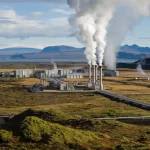The Intergovernmental Panel on Climate Change has issued a Special Report on the Impacts of Global Warming of 1.5°C, concluding that limiting global warming to 1.5°C will require rapid, far-reaching and unprecedented changes in all aspects of society, the panel said in a new assessment. With clear benefits for people and natural ecosystems, the report finds that limiting global warming to 1.5°C compared to 2°C can go hand in hand with ensuring a more sustainable and just society. While previous estimates focused on estimating the damage if the average temperature increased by 2 degrees Celsius
effects of climate change
The report highlights a number of climate change impacts that could be avoided by limiting global warming to 1.5°C compared to 2°C or more. For example, by the year 2100, global sea level rise will be 10 cm lower with a 1.5°C warming compared to 2°C. The probability of an Arctic ocean free of summer sea ice would be once per century with a 1.5°C warming, compared with at least once per decade with 2°C. Coral reefs will decline by 70-90% with a 1.5°C warming, while almost all (99%) will be lost with a 2°C rise.
Reducing global warming
The report concludes that limiting global warming to 1.5°C requires “rapid and far-reaching” shifts in land, energy, industry, buildings, transport and cities. Global net emissions of carbon dioxide emissions must fall by about 45% from 2010 levels by 2030, reaching “net zero” around 2050. This means that any remaining emissions must be offset by removing carbon dioxide from the air .












